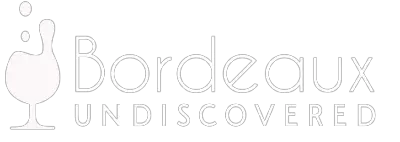The Sauternes First Growth Chateau d’Yquem will not be producing a vintage for 2012 due to the difficulties in harvesting grapes of sufficient quality after too much rain. The rainy weather conditions have resulted in the poor development of Noble Rot (botrytis cinerea).
Noble Rot is the fungus that usually covers the ripe grapes, concentrating the sugars and adding layers of complexity to the finished wine. If too much rain falls the beneficial spores are washed off which means that no sweet wine can be made from the crop.
Director Pierre Lurton told the AFP that despite their best efforts and the great terroir of the chateau Nature was against them.
He added that a brand like Yquem should know when not to make a vintage and that it was reasonable not to do so in order to maintain Chateau d’Yquem’s image as one of the greatest white wines in the world and maintain its place in the history books.
This is not a first for the chateau as d’Yquem has had to make this difficult decision in the past – no vintage was produced in 1952, 1972 and 1992. Lurton remarked that “it’s as if every 20 years there is a curse.” In fact d’Yquem has had poor crops a number of times (1910, 1915, 1930, 1951, 1952, 1964, 1972, 1974, and 1992) which contradicts his comment about a curse.
Having discussed the situation with Bernard Arnault of the luxury group LVMH which owns d’Yquem, they decided that it was important to keep d’Yquem’s excellence intact in order to maintain the sustainability of the brand.
With 100,000 bottles produced per year on average, the loss could amount to 25 million euros but Lurton said that he is not concerned about the loss of income and that d’Yquem has other great vintages that will reimburse the short fall over the long term. Indeed d’Yquem decided not to release the ‘outstanding’ 2011 vintage at En Primeur this year as they did not want to release a potentially superb wine in difficult market conditions.
Of course not every chateau in Sauternes or Barsac can afford to dispose of a bad vintage and d’Yquem is in the fortunate position that it can do so.
It’s also important to bear in mind that not every chateau in these appellations has had a poor vintage for 2012 either. Vineyard management, harvesting and wine making techniques are all highly individual to each chateau and some will produce a good wine this year – albeit under difficult conditions.
Wine Spectator reports that Lurton’s decision has “aggravated some of his Sauternes and Barsac neighbours who produced a 2012 wine and worry that Yquem’s decision will scare buyers away.”
Most chateaux have suffered from extremely low yields but have managed to create good wines – Chateau Coutet has produced half their normal yield. De Fargues has produced less than 300 cases, Doisy Daene is down 30% on yields and Guiraud“will be lucky to produce 1,000 cases rather than its usual 11,000”.
It seems that d’Yquem’s decision not to produce a wine for 2012 may be more about marketing strategy than poor quality. No wine for 2012 will only bolster the value of the precious 2011 and add an air of rarity to what is being heralded as a sublime wine. It may also increase the attractiveness of back vintages of d’Yquem as Sauternes fans as collectors seek them out faced with the dearth of recent vintages . . .

